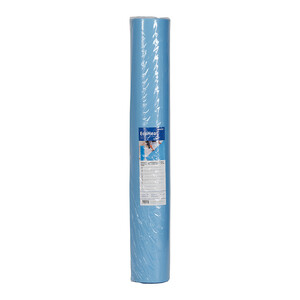Using Green Construction Materials for Sustainable Soundproofing
페이지 정보
작성자 Brigida 작성일25-03-28 19:23 조회3회 댓글0건관련링크
본문
As the world continues to struggle with the challenges of climate change, ecological damage, and sustainability, the building industry is undergoing a significant shift towards eco-friendly and sustainable practices. One aspect of construction design that is often neglected is soundproofing, which plays a crucial role in creating a comfortable and comfortable living or working environment. Traditional noise reduction materials are often made from man-made materials that are not only harmful to the ecosystem but also add to indoor air pollution. In this post, we will explore the use of green construction materials for eco-soundfriendly soundproofing and emphasize their advantages.
One of the key considerations when selecting eco-friendly building products for noise reduction is their acoustic performance. Traditionally, products like drywall, plywood, and fiberglass panels have been used for noise reduction due to their relatively high sound absorption and transmission gain ratings. However, these materials are not only environmentally dangerous but also pose health risks due to the emission of volatile organic compounds (VOCs) and fine particles.
In contrast, eco-friendly building materials offer a more eco-friendly and safer alternative for noise reduction. Some of the most commonly used eco-friendly materials include recycled denim insulation, bamboo plywood, and natural mat mats. Denim paneling, for instance, is made from recycled cloth garment and has a sound transmission loss rating of up to 50% more than historical fiberglass panels. Engineered wood panels, on the other hand, is a highly renewable and environmentally friendly material that can be used as a soundproofing material or as a aesthetic finish.
Another crucial consideration to consider when selecting green construction materials is their durability and lifespan. Traditional soundproofing products tend to have a lesser lifespan due to their susceptibility to humidity damage, fungal mold growth, and insect migration. Eco-friendly products, on the other hand, are often more resistant to these problems and can withstand the harsh environment of a standard laundry room often found in big noise reduction construction projects without significant erosion.
In additionally to their acoustic performance and durability, eco-friendly building products also offer several ecological advantages. For instance, recycled denim insulation produces less garbage during the manufacturing procedure and requires fewer resources to manufacture. Bamboo panels, пенохит для бани on the other hand, requires less liquid and land to cultivate and produce it a more sustainable choice.
Incorporating eco-friendly building products into noise reduction projects can have a substantial impact on the complete eco-friendliness of a structure. From reducing waste and energy usage to enhancing indoor environmental cleanness, green products can develop a more comfortable and more healthy living or working environment. Moreover, using eco-friendly products can also add to achieving eco-friendly building certification criteria such as Leadership in Energy and Environmental Design and Passive House Institute.
In conclusion, using eco-friendly building products for eco-soundfriendly soundproofing is a crucial process towards creating a more eco-friendly and eco-friendly construction industry. By selecting materials that are not only environmentally amiable but also effective in lessening noise pollution, we can create buildings that not only meet but surpass the standards of comfort, health, and well-being whether you are an architect, builder, or homeowner incorporating green building products into your noise reduction project can cause a substantial difference in the extended period.
One of the key considerations when selecting eco-friendly building products for noise reduction is their acoustic performance. Traditionally, products like drywall, plywood, and fiberglass panels have been used for noise reduction due to their relatively high sound absorption and transmission gain ratings. However, these materials are not only environmentally dangerous but also pose health risks due to the emission of volatile organic compounds (VOCs) and fine particles.
In contrast, eco-friendly building materials offer a more eco-friendly and safer alternative for noise reduction. Some of the most commonly used eco-friendly materials include recycled denim insulation, bamboo plywood, and natural mat mats. Denim paneling, for instance, is made from recycled cloth garment and has a sound transmission loss rating of up to 50% more than historical fiberglass panels. Engineered wood panels, on the other hand, is a highly renewable and environmentally friendly material that can be used as a soundproofing material or as a aesthetic finish.
Another crucial consideration to consider when selecting green construction materials is their durability and lifespan. Traditional soundproofing products tend to have a lesser lifespan due to their susceptibility to humidity damage, fungal mold growth, and insect migration. Eco-friendly products, on the other hand, are often more resistant to these problems and can withstand the harsh environment of a standard laundry room often found in big noise reduction construction projects without significant erosion.
In additionally to their acoustic performance and durability, eco-friendly building products also offer several ecological advantages. For instance, recycled denim insulation produces less garbage during the manufacturing procedure and requires fewer resources to manufacture. Bamboo panels, пенохит для бани on the other hand, requires less liquid and land to cultivate and produce it a more sustainable choice.
Incorporating eco-friendly building products into noise reduction projects can have a substantial impact on the complete eco-friendliness of a structure. From reducing waste and energy usage to enhancing indoor environmental cleanness, green products can develop a more comfortable and more healthy living or working environment. Moreover, using eco-friendly products can also add to achieving eco-friendly building certification criteria such as Leadership in Energy and Environmental Design and Passive House Institute.
In conclusion, using eco-friendly building products for eco-soundfriendly soundproofing is a crucial process towards creating a more eco-friendly and eco-friendly construction industry. By selecting materials that are not only environmentally amiable but also effective in lessening noise pollution, we can create buildings that not only meet but surpass the standards of comfort, health, and well-being whether you are an architect, builder, or homeowner incorporating green building products into your noise reduction project can cause a substantial difference in the extended period.

댓글목록
등록된 댓글이 없습니다.









